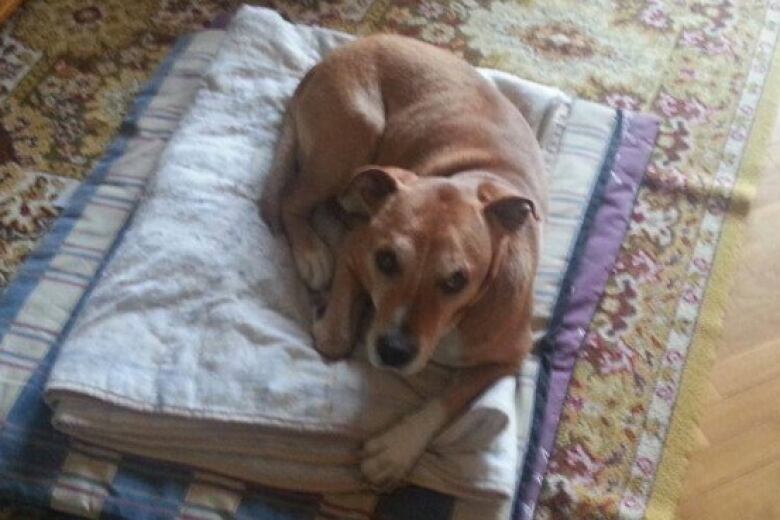Ebola fight in Liberia ramps up as U.S. sends marines
Liberia and Sierra Leone only have enough beds to meet about 21% and 26% of their needs

The U.S. military was ramping up its aid efforts in Ebola-wracked Liberia on Thursday, even as yet another doctor working in the country died after becoming infected.
"Two different flights of MV-22 Osprey and KC-130 aircraft, along with U.S. Marines, will arrive to support the whole-of-government effort to contain Ebola," U.S. Army Capt. R. Carter Langston told The Associated Press in an email. They were to land later Thursday at Roberts Airfield outside the Liberian capital, Monrovia.
The U.S. military is working to build medical centres in Liberia and may send up to 4,000 soldiers to help with the Ebola crisis. Medical workers and beds for Ebola patients are sorely lacking, particularly in Sierra Leone and Liberia.

Liberia and Sierra Leone only have enough beds to meet about 21 per cent and 26 per cent of their needs, the World Health Organization said Wednesday. British troops have arrived in Sierra Leone to start building more treatment centres and basic clinics.
A Ugandan-born naturalized Liberian doctor, John Taban Dada, died of Ebola at a treatment centre on the outskirts of Monrovia early Thursday, health officials have confirmed. Assistant Health Minister Tolbert Nyenswah said the gynecologist and surgeon will be immediately buried Thursday in accordance with policy about the quick interment of victims.
Dr. Dada served as the medical director of the Redemption Hospital in Monrovia from 2008 to 2013 before moving on to take up a new assignment at the country's largest John F. Kennedy Memorial Center, according to authorities at the Redemption Hospital.
- MORE COVERAGE | Photos, videos, stories
- MAP | The spread of the Ebola virus
- Ebola: Infected Spanish nursing aide touched face with glove
His death brings to four the number doctors who have died in Liberia since the outbreak. Over ninety health workers including nurses and physician's assistants have also died from the outbreak.
Dr. Atai Omoruto, a Ugandan doctor heading the newest Ebola treatment centre at what used to be Island Clinic in the western suburbs of the city, expressed shock at the death of Dada, a very quiet and dedicated man.
"I didn't know he has passed on; it is really unfortunate that we're still losing so many health workers," she told AP.
"This Ebola really … it has come for the health workers," she said, "Because right now at Island Clinic we have almost 10 health workers admitted including doctors from JFK and laboratory technicians and nurses."
There was also concern in Spain, where the first person known to have caught the disease outside the outbreak zone in West Africa became sick.

The assistant director of Madrid's Carlos III hospital where a Spanish nursing assistant diagnosed with Ebola is being treated said Thursday the patient's condition has deteriorated.
Yoland Fuentes said the patient, nursing assistant Teresa Romero, had asked for details of her condition not to be release and doctors could not give further information
Two doctors who treated her have been admitted to a Madrid hospital for precautionary observation, bringing to six the number being monitored at the centre, health officials said Thursday.
A spokeswoman for the Carlos III hospital said neither of the doctors, nor the woman's husband — who is also under observation — has shown Ebola symptoms.
The doctors tended Romero before she was diagnosed as having Ebola on Monday. Two other nurses in quarantine are awaiting tests for the virus.
Romero is the first person known to have caught the disease outside the outbreak zone in West Africa.
Around the world, health authorities scrambled to respond to the disease:

The disease has killed at least 3,800 people in West Africa with no signs of abating. On Thursday, the presidents of Liberia, Guinea and Sierra Leone, the countries hardest hit in the outbreak, were appealing to the World Bank for more help for their nations.
"What we're paying for now is our failure to have invested in those countries before," said Francisco Ferreira, the World Bank's chief economist for Africa. They had only minimal health facilities even before Ebola hit.
U.S. Secretary of State John Kerry made a plea Wednesday for more nations to contribute to the fight against Ebola, saying the international effort was $300 million short of what's needed. He said nations need to step up quickly with a wide range of support, from doctors and mobile medical labs to basic humanitarian aid such as food.